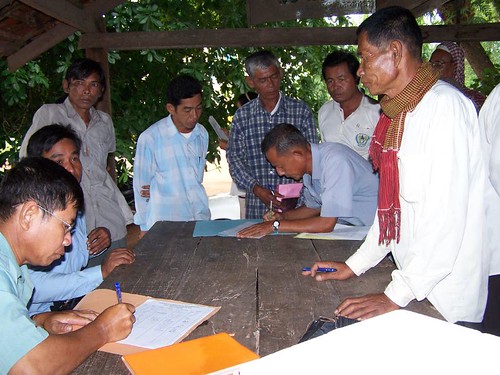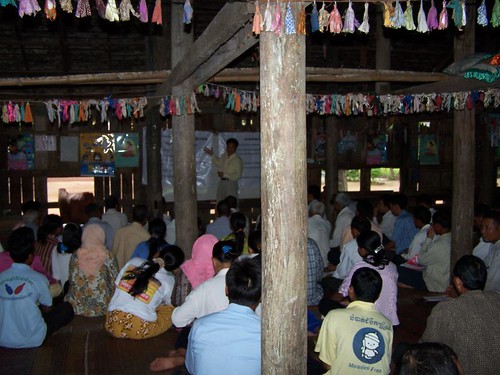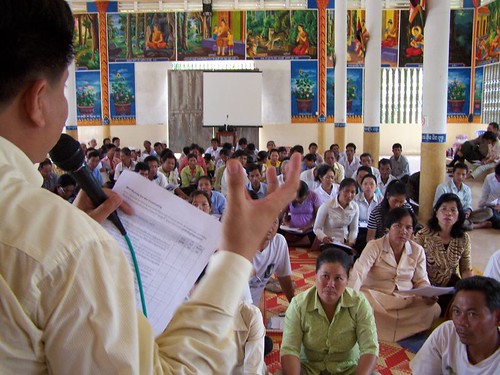Back home the great outdoors is cast in a peaceful sheen after a good snow. Here in Phnom Penh the night-time glow of a few streetlights or the occasional passing vehicle blurs the rough edges. From K Kelly’s portfolio:


Views of Sisowath Quay and the Tonle Sap River from the top of FCC, a bar-restaurant on the river. River-side seats at the top floor of this colonial-style establishment is a good place for happy hour. To the left of the 2nd photo, downriver, is the confluence of the Tonle with the Mekong.

This beautiful old building on Sothearos is currently undergoing restoration efforts to become a hotel-restaurant with direct access to the FCC.

Cyclos, perhaps around 300 left in Phnom Penh, round up for the night across the street from the National Museum. This is the best way to secure their only belonging and means of livelihood.

The National Museum off street 178 is a trove of artifacts unfortunately haphazard in collection, display and description. The courtyard is a peaceful haven for reading.


The Royal Palace on Sothearos Blvd. It was built in 1866 after the capital was moved to Phnom Penh from Oudong, and occupied by the Kings of Cambodia except during the Khmer Rouge period.

And this is Psar Thmei, currently getting a facelift. It was built in 1935 on a swamp lake area that was drained that still today gets wet season flooding.

The “phone booth” is where young people are often seen congregating, to connect with their group dates. With competing mobile companies limiting traffic to and from their exchanges, it’s sometimes just easier to find a phone with the same exchange as the mobile you need to reach.
Updated in April 2008 to include new developments:

The Independence Monument (Vimean Aikreach) on Sihanouk and Norodom Blvds was built in the centre of the city in 1958 after independence from France. There’s a pedestal inside with a ceremonial flame lit by royal or high-level officials for national celebrations. It got its facelift in 2007 with a fountain and light show.

The new fountains are now finished at the Vietnamese Memorial Park, on Sothearos Blvd. The lights and streams are synchronised to pop music. During the Khmer New Year (2008) these fountain areas turned into impromptu ‘club scenes’ complete with Khmer-style DJ-ing (popping CDs into the player).

A new monument to Buddhism was erected late in 2007 in front of Naga Casino and Hun Sen Park, on Sisowath Blvd.

And a tribute to Khmer’s musical heritage now stands in the median on Sisowath in front of Cambodiana and Himawari Hotels. What he has in his hands looks like a very old tror sraor (stringed vertical fiddle).




